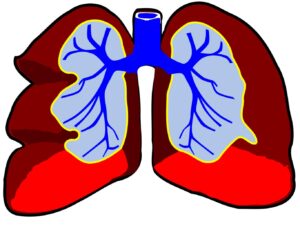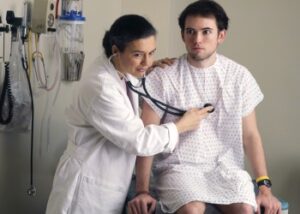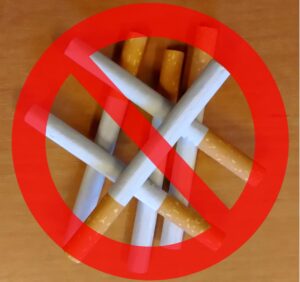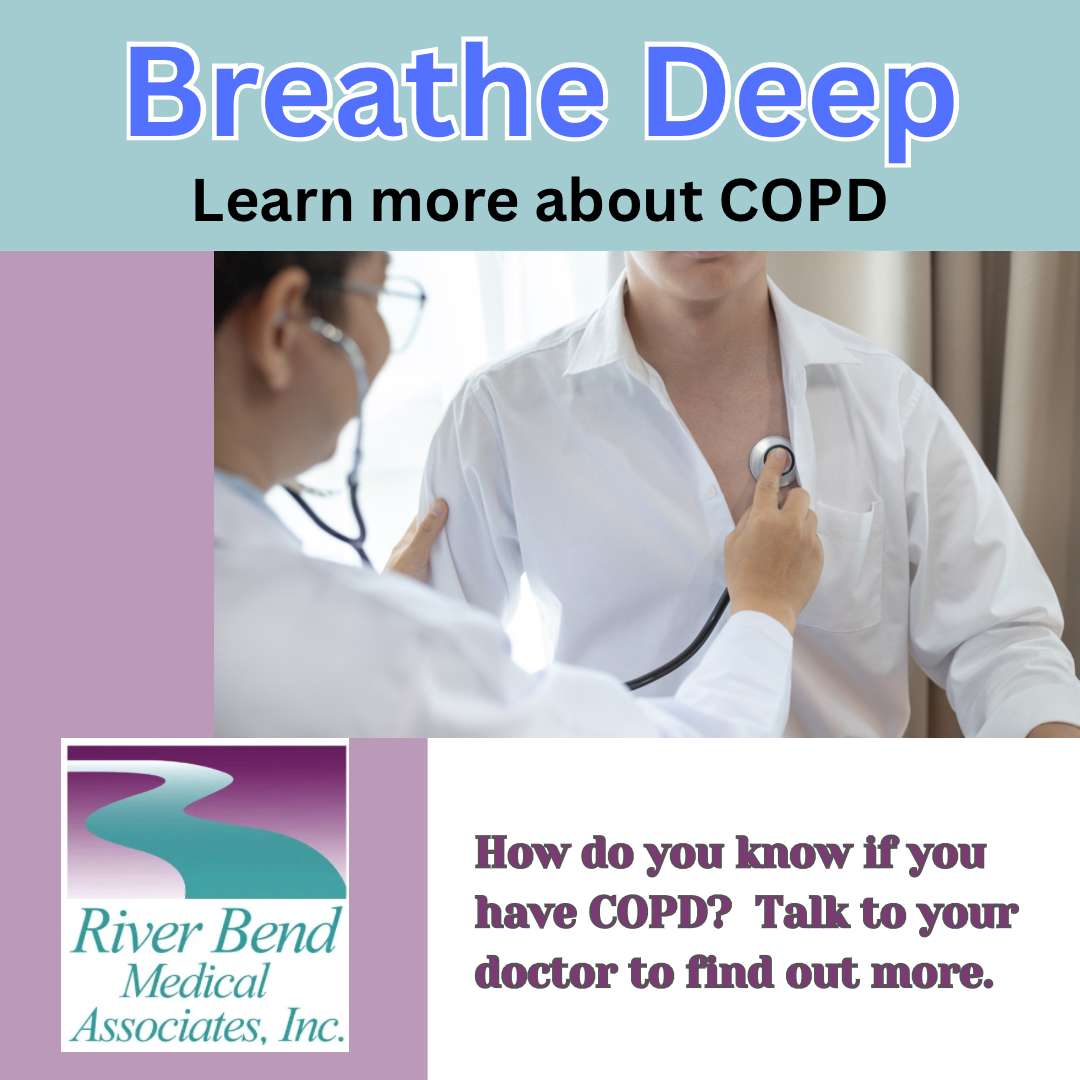November is Chronic Obstructive Pulmonary Disease Awareness Month, but what is COPD, and how do I know if I have it?

Chronic Obstructive Pulmonary Disease, or COPD, is a group of lung diseases:
- Chronic Bronchitis – Chronic inflammation of the tubes that bring air to your lungs.
- Emphysema – Damage to the air sacs in your lungs.
- Refractory Asthma – Chronic obstructive asthma that doesn’t go away.
These lung diseases all make it difficult to breathe.
The number one cause of COPD is cigarette smoking, but it can also be caused by exposure to other pollutants or lung-irritating gases over a long period.
According to the Centers for Disease Control, approximately 16 million adults in the U.S. are diagnosed with COPD, and many more may be undiagnosed.
If you’re a smoker or former smoker, you may be concerned about COPD and your lung health, but how do you know you have COPD?
What are the Symptoms of COPD?
COPD develops slowly and can get worse as time passes. You might not notice COPD symptoms until the disease has advanced beyond the early stages. But as the disease progresses, it can make physical activities like walking or climbing stairs difficult.
The symptoms of chronic obstructive pulmonary disease include:
- Shortness of breath
- Chronic “smokers cough”
- Wheezing
- Frequent respiratory infections
- Chronic phlegm production
Since it can be easy to miss the early signs of chronic obstructive pulmonary disease, if you smoke, are a former smoker, have a family history of emphysema, or have been exposed to lung pollutants, you should talk to your doctor about getting tested for COPD.
How Do I Get Diagnosed with COPD?

One of the most essential steps you can take to find out if you have COPD is to see your doctor or healthcare provider. In diagnosing COPD, your doctor will talk to you about any symptoms you may be experiencing, your family medical history, and your health history.
To get the best treatment for your COPD, be open and honest with your doctor when discussing your health history and personal habits. They will need to know if you smoke or, if you’re a former smoker because smoking is the biggest risk factor for COPD.
During your visit, your doctor will do a chest exam. They will place a stethoscope on your chest to listen to your breathing to check for anything unusual, like wheezing.
If your doctor suspects COPD, they will likely test your breathing with a spirometer.
This test is simple and painless.
During the test, you will be asked to take a deep breath and blow into a mouth piece attached to a machine called a spirometer. The machine measures the amount of air you can breathe in and out. The results of this test can indicate if you have COPD, even if you haven’t noticed any symptoms yet.
In addition to lung function tests with the spirometer, your doctor may order arterial blood gas testing, a chest x-ray, or a CT scan to look for other health issues or lung illnesses.
How Do I Manage My COPD?
With proper diagnosis and a growing number of treatment options, there is hope for those with COPD.
Your doctor can suggest treatments and ways to help manage your COPD.
Treatments for COPD include medications to help relieve symptoms, pulmonary rehabilitation, oxygen treatment, breathing exercises, and in some severe cases, surgery.

Here are five things you can do to breathe better and improve your quality of life.
- Quit smoking – If you need help, talk to your healthcare provider about new choices for quitting.
- Get vaccinated – Flu and other respiratory illnesses can cause serious problems for people with COPD, so it’s essential to stay up to date on your immunizations.
- Avoid exposure to lung irritants and pollutants – Try to stay away from things like fumes, dust, smoke, and other things that can irritate your lungs.
- Follow your treatment plan – Take your medications as directed and be proactive about caring for your health.
- Visit your family doctor regularly – Regular doctor appointments can help you to stay up to date on vaccinations. Be sure to tell your doctor if your symptoms have worsened or if you have new symptoms.
COPD, also known as chronic bronchitis or emphysema, is a serious condition that damages the lungs, making it hard for you to breathe. COPD is a leading cause of death in the United States. It affects millions of people, yet some don’t know they have it until it is advanced.
How do you know if you have COPD? Talk to your doctor or healthcare provider about your concerns and symptoms.
At River Bend Medical Associates, our team of family practice doctors can test your lung function to determine a treatment plan or if you need to see a specialist. We will evaluate your condition and develop an individualized care plan with the latest treatments and support. If you’re experiencing COPD symptoms, like coughing, running out of breath, wheezing, or a lot of mucus, don’t wait. Contact us today and start breathing easier.


